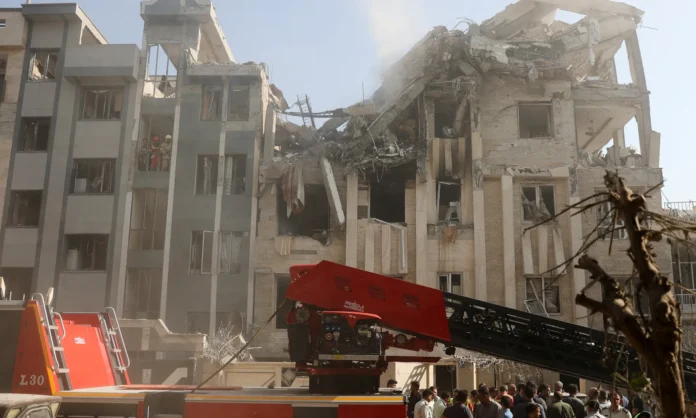Overview of Operation Rising Lion
Operation Rising Lion began on June 13, 2025, as Israel’s most extensive military action against Iran since the 1980s. The air campaign targeted Iran’s nuclear facilities at Natanz, Isfahan, Khondab, and Khorramabad. I find it striking that Israel deployed roughly 200 fighter jets alongside Mossad operatives to dismantle centrifuge halls and command centers, including sites linked to former IRGC leaders like Hossein Salami and Mohammad Bagheri. In my view, this operation shows Israel’s willingness to act decisively when it views a threat as imminent.
Trump’s Public Denial
I read President Trump’s Truth Social message and felt the tension in every word. He wrote that “the US had nothing to do with the attack on Iran, tonight,” and warned Tehran that “the full strength and might of the US Armed Forces will come down on you” if American interests face any attack. His mix of denial and threat stands out to me because it mirrors his past style of combining tough talk with hints at possible deal‑making. He even suggested that he could mediate peace between Iran and Israel, noting that “we can easily get a deal done” if both sides agree. In my view, this dual approach keeps options open while ensuring adversaries understand the risks of further escalation.
Iran’s Evidence Claims
Iran’s Foreign Minister Abbas Araghchi went on state television to say they hold “solid proof” of U.S. backing for these Israeli strikes. He warned that any nation defending Israel’s action could see its regional bases become targets. I think his statement aims to rally domestic support and put pressure on U.S. allies. Yet, I remain skeptical about the nature of the so‑called proof, since Iran has a history of presenting claims without full transparency. The back‑and‑forth between Washington’s denials and Tehran’s assertions feeds into a broader narrative of mistrust that has plagued U.S.–Iran relations for decades.
Impact on Middle East Stability
I worry about the fallout of these accusations. If Iran truly believes the United States aided the strikes, it may feel justified in retaliating not only against Israel but also against U.S. forces and those of its partners in the region. Secretary of State Marco Rubio stated that “Israel acted alone” and emphasized America’s priority of protecting its personnel. Yet an unnamed Israeli official spoke to The Jerusalem Post about full coordination with U.S. planners. I find this contradiction troubling because it undercuts the credibility of both sides and makes it harder for neutral observers like me to know whom to believe.
My Take on Next Steps
As tensions simmer, I expect both sides to keep issuing strong statements without revealing all details. In my view, diplomats should push for an independent inquiry into the attack’s planning to clarify any American role. Otherwise, rumors will fuel further mistrust, and regional actors may prepare for retaliation rather than dialogue. I also believe that public diplomacy—sharing declassified intelligence that supports or refutes Iran’s claims—could ease some pressure by moving discussion into the open.
What This Means for Readers
I know you care about how these events might affect global security and energy markets. Israel’s strikes could push oil prices higher and risk wider conflict if Iran targets shipping lanes or Gulf installations. You might want to watch U.S. congressional debates on funding Middle East operations and track IAEA statements on nuclear site assessments. In my view, staying informed through multiple sources will help you separate fact from spin.

